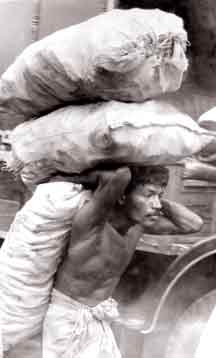|
DAILY NEWS ONLINE |
|
|
|
OTHER EDITIONS |
|
|
|
|
|
|
|
|
|
OTHER LINKS |
|
|
|
|
|
|
 |
Window of opportunity flung open in 'Open Schools'THE Government's initiative to set up Open Schools to encourage a wide range of academically less fortunate persons, including those who have dropped out of the main education system, to improve their learning, is a timely project.
In Sri Lanka there is an urgent need for a program of this nature as many who had not received some school education - although some of them are engaged in various income earning activities - lack subject and general knowledge to do better in whatever they are pursuing. In Sri Lanka, on an average, about 17 per cent students drop out of schools every year. Education authorities attribute this to many reasons including the conflict situation, lack of schools, poverty and ignorance of parents. The most recent reason for dropping out of school is the tsunami. In the catastrophe many students lost their parents, kith and kin, houses and educational facilities. Many schools in the affected areas have reported dwindling numbers of students. School dropouts can become a major social issue as many of them end up beggars, thieves and drug addicts. Due to their low level of education and general knowledge, gangs can attract them to engage in various illegal activities including underworld operations. Therefore, the proposed Open Schools project should seriously look at these social factors. They will be taught basic skills and attitudes which are necessary to start an income earning activity or to expand their businesses. Many young people who had not received any education go into various income-earning activities. Although they manage to earn some income through these vocations - they find it difficult to pursue them further due to lack of educational qualifications. The National Institute of Education is in charge of designing the 'Open School' program. A senior official of the NIE told the Daily News that they are in the process of designing the curriculum at present. "There are lots of aspects we have to consider in this process. It is quite a wide group and we need to identify this target group first," the official said. He added that there are many people including dropouts and young people who did not have any education in the main stream, who want to pursue some qualifications and technical training. "We plan to cater to them through distant learning programs and various other methods of modern teaching programs," he said. People who need to get back to the education system can join the program at any time. Citing an example, the official said, for instance, if a taxi driver wants to expand his education in an area which is relevant to his profession, the program would support such people. The official also said that our neighbours India and Bangladesh have already launched such programs and the NIE is studying their experiences as well. The NIE also hopes to launch a Radio Channel to coordinate these educational programs. For instance, this kind of education in the area of farming and agriculture can certainly help improve the productivity of small farmers, the official said. An education in areas, such as organic farming and new technologies is important for improving farm productivity. Education in this sector could be a combination of practices and inputs tailored to specific crops and to land, water and climatic conditions. Farmers should need a good understanding of the basic principles behind the use of farming technologies, such as pesticides and fertilizers. Many farming communities in Sri Lanka today do not understand the use of pesticides. Many farmers continue to purchase pesticides directly from a 'mudalali' of the village boutique who do not have any knowledge of pesticide use. Therefore, better quality education would increase the ability of farmers to apply proper agricultural practices. Good quality education of this nature will equip students with the required level of skills to work in medium and high level manufacturing and industrial jobs. Therefore, the authorities should prepare a curriculum that would enhance the skills and knowledge of the academically less qualified and prepare them for the world of work. Without basic literacy and knowledge, people's ability to adapt to changing production methods and technologies is severely constrained. This applies to agriculture, services, manufacturing and other industrial activities. The Government should also get private sector participation in this endeavour and combine studies with practical training. Such training by private companies can be cost-effective and efficient and will be beneficial to both the private sector and the Government. |
|
|
|
 |
|||
|
|||
|
|
|||




